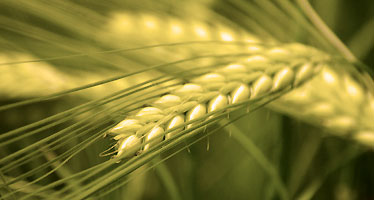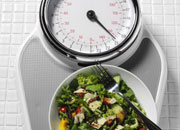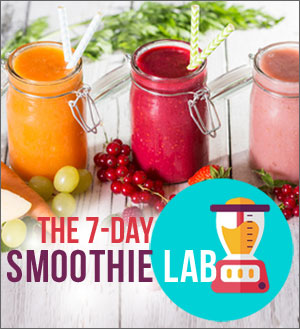 Carbohydrates are fuel for metabolism.
Carbohydrates are fuel for metabolism.
Chemical reactions in cells require fuel. Muscles, from heart to digestive system to biceps and quads all use carbohydrate, in the form of glucose. Brain cells need twice the energy as other cells.
The brain runs almost exclusively on glucose, using up about 20 percent of your daily calorie needs. Because glucose is so critical to brain function, your body maintains blood glucose above a certain level, with a complex set of hormone signaling systems.
Carbohydrate in food comes in two forms: sugar and starch. The basic building blocks of both are simple sugars like glucose and fructose. More complex carbohydrates are made by linking simple sugar molecules together. Fructose and glucose join to make sucrose. Long chains of glucose are called starch. Digestion breaks these carbohydrates into single sugar molecules, which are absorbed into the blood.
There is no set RDA for carbohydrate, as there is for vitamins or protein. Carbohydrate is used for energy needs, so daily intake will depend on how many calories you need. Since basic fuel needs, for brain function and metabolism must be met, a minimum amount of carbohydrate should be eaten everyday. That level, in the chart below, is 130 grams/day for children and adults.
Carbohydrate has 4 calories per gram, so 130 grams equals 520 calories. The basal energy needs of most adults are at least twice that. Additional calories can come from carbohydrate, fat or protein in food.
The best way to think of carbohydrate intake is as a percent of your total daily calorie intake. The recommended range is 45 – 65% of calories as carbohydrate. For example, if you eat 1600 calories per day, and 50% of those calories are carbohydrate, you would eat 200 grams per day. Athletes need to eat at the high end of the carbohydrate range, to fuel training and competition.
Recommended Dietary Allowances for Carbohydrates
 Source: Food and Nutrition Board, Institute of Medicine, National Academies
Source: Food and Nutrition Board, Institute of Medicine, National Academies
Which Foods Are High In Carbohydrate?
Carbohydrates are widespread in our food. Exceptions are meat and fish, which have no carbohydrate, and pure fats, such as vegetable oils.
Plant foods are our primary source of carbohydrate, and some, such as grains, are the most concentrated.
The best carbohydrate foods are unprocessed whole foods, like fresh fruit, 100% juice, whole grains, foods made with whole grains and many vegetables. These foods also contain fiber, vitamins, minerals and antioxidants. Foods made with refined grains have fewer of these nutrients. Foods loaded with added sugars have few nutrients and can add excess calories.
Barley
Wheat
Couscous
Oats
Rye
Buckwheat
Pasta
Noodles
Cornmeal
Flour
Tortillas
Bulgur
Cereals
Fruit
Dried fruit: dates, raisins, etc
Potatoes
Sweet potatoes
Winter squash, like butternut and acorn
Carrots and carrot juice
Bread
Bagels
Fruit juice
Sugar
Honey
Agave syrup
Corn syrup
Molasses
Milk
Nuts and nut butters
While vegetables are primarily carbohydrate, most aren’t concentrated carbohydrate, because they have high water content.
Foods made with high carbohydrate ingredients like flour and sugar will typically also be high carbohydrate. Products like muffins, pancakes, cakes and doughnuts, candy, snack foods, crackers, and cookies are high carbohydrate. Beverages sweetened with sugar, honey, agave and corn syrup are also high carbohydrate.
What Happens If You Don’t Get Enough Carbohydrates?
Carbohydrate deficiency symptoms due to poor intake are rare. A minimum blood glucose level must be maintained to support brain function and basic metabolism. If you eat few carbohydrates, glycogen, the storage form of glucose, is broken down to keep blood glucose in the normal range.
In extreme situations, such as starvation, muscle protein is metabolized, and the amino acids from that protein are modified to make glucose.
Blood glucose can fall below normal levels for reasons unrelated to dietary intake of carbohydrate. Insulin controls blood glucose, and excess insulin, due to metabolic abnormalities or excess dosing for diabetics, can cause blood glucose to drop. Symptoms include shakiness, confusion, anxiety and vision disturbance. Again, such symptoms are more likely to be caused by metabolic abnormalities than by eating too little carbohydrate.
Another sign of eating few carbohydrates might be weight loss. If you cut calorie intake by cutting out carbohydrate foods, your body will have to use fat stores to meet energy needs. Strictly speaking, this isn’t so much a carbohydrate deficiency as a fuel deficit.
Can you eat too many carbohydrates? That’s a hot topic, with plenty of people advocating low carb diets for weight loss. While cutting carbs might help cut calories, drastic low carb diets will be unbalanced. Cutting carbohydrate foods also cuts out the vitamins, minerals, antioxidants and fiber in those foods. If you eat a balanced diet, and stick to a calorie level that’s appropriate for normal weight, carbohydrate intake in the recommended range is fine.


 Are you ready to look better, feel more energized, and get back that youthful feeling you remember having as a kid? I can help you on a journey that will change the way you eat — for good. My
Are you ready to look better, feel more energized, and get back that youthful feeling you remember having as a kid? I can help you on a journey that will change the way you eat — for good. My 














 As a healthy cooking expert, health coach and TV host,
As a healthy cooking expert, health coach and TV host, 



Speak Your Mind